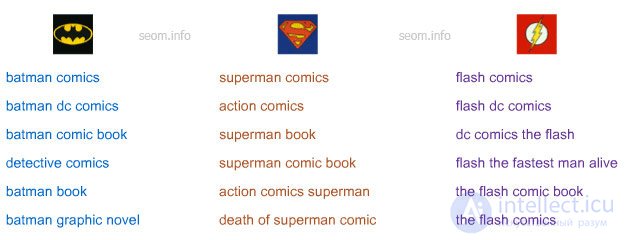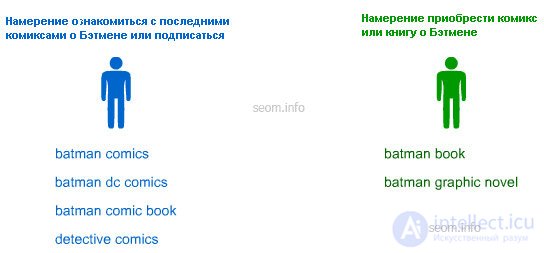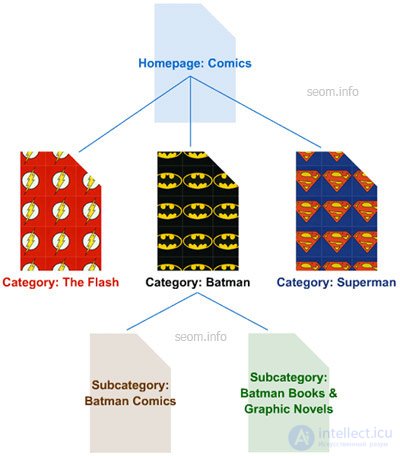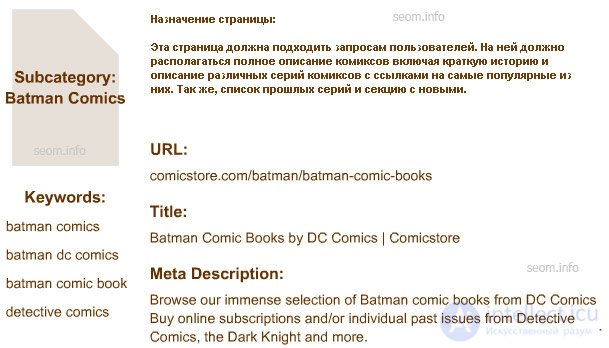
Perhaps you have already dealt with keyword targeting and have been told how to effectively distribute the list of keywords across different pages and use it with maximum benefit.
But for those who may not have heard or did not know at all about such a phenomenon (perhaps all of us, since there is no formal seo training), it will not hurt to refresh knowledge.
Many optimizers are already tired of answering such questions as:
- How many keywords can I use per page?
- Should I use all the most important points on the main page (as it gains the most link weight)?
- Where should I use similar phrases together, and where should I share?
This post is written to answer these and other questions.
At the end of the work on keywords, you set which phrases will be able to give a result . Now you have a task where and how to use each keyword . The following are 4 steps that will help make this process easier (obviously, the list of keywords is huge).
Step 1: Creating keywords related to the main.

I use "comic books" as the main key phrase, because they are funny and my old friend recently opened a comic book shop in West Seattle - my head is packed with super heroes.
In the example above, I have grouped important keywords into related groups - in this case by super-heroes. You can do this with products, articles, categories, or any other content.
Step 2: Identify the segment and interests.

Next, I have to segment the keywords into interest groups for potential visitors. This requires great attention, because if at least 2 keywords (phrases) are very similar, putting them together can be detrimental, if the goal of the person who is looking for is a little different.
From a technical point of view, it is worse to be in such a case at the 1st position in the issuance and have a conversion of about 0.1% than at the 10th position and have a 2%. Using the division of interests, you can be sure that the exact search traffic will go without harming the site in the form of conversion and usability.
Step 3: Building a site hierarchy according to logic and usability.

If possible, you can build a site hierarchy entirely on the results of keyword research and targeting.
Even if you have a slightly tangled navigation, you can hire a specialist who will competently make internal linking, which will help users to easily find the desired page.
The whole point is to create content that satisfies the needs of users, then create navigation and thirdly take into account the more specific needs of visitors.
Step 4: Positioning the page content according to the keyword.

Now you have grouped keywords for different pages and a qualitative site hierarchy, the final step will be: prescribe the Title, addresses and Meta Description (description) of each page and according to the keywords.
In the example above, I used keyword variations in the page elements (singular and plural words) to drive traffic. I also used "detective comics", although from a technical point of view I had to select it into a subcategory that would refer to the parent category.
Such process planning is important to maximize the effect. After a while, data analysis will help you identify those places where you made a mistake.
It is very important to understand the basic rules when targeting keywords :
- You must take into account the experience of visitors and the number of keywords on each page, based on their content.
- Pages may contain variations of keywords , if this requires the interest of the public. Do not separate the pages or create a new one without good reason, if the set of keywords can be perfectly optimized for one. Remember that it is much easier to get a link to one quality page than a few.
- The content of the pages should correspond to the keywords that are directed to it and have links to pages that have extended information. Search engines are very "smart" - if visitors do not benefit from your pages, they will not leave a backlink, will no longer switch to them in the results and will never again recommend to others. If you are aiming at the top of the list today, in the long term, search engines will find a method for getting more relevant and high-quality content.


Comments
To leave a comment
seo, smo, monetization, basics of internet marketing
Terms: seo, smo, monetization, basics of internet marketing